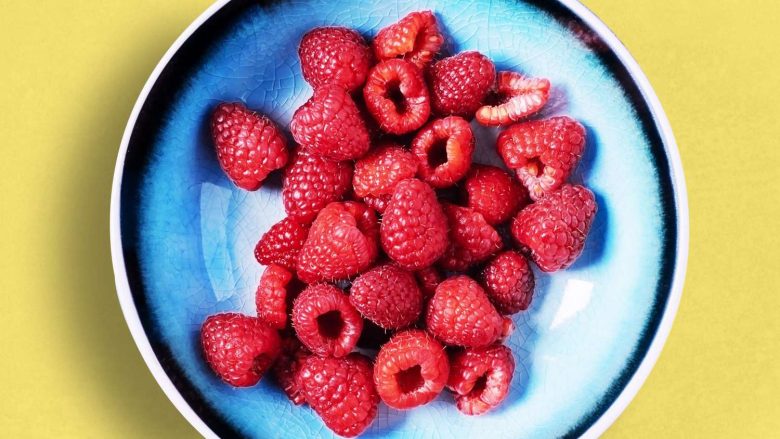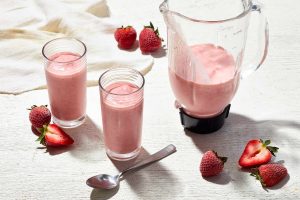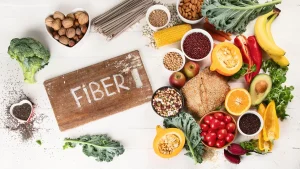There are chemicals in the body called antioxidants that help protect the body from free radical damage. These free radicals accelerate the aging process and worsen long-term conditions such as heart disease, cancer, and Alzheimer’s disease. Eating fruits rich in antioxidants can help your body fight these harmful molecules naturally, which is good for your overall health. This article discusses some of the best antioxidant-rich foods that you can consume to reap all the health benefits.
1. Blueberries
Blueberries are often called a ‘superfood’ because of their very high antioxidant content. Anthocyanins are flavonoids that give them their deep blue color. Anthocyanins also have strong antioxidant properties. These antioxidants help fight free radicals, reduce inflammation, and prevent cell damage. Blueberries have been shown to help the brain work better, keep your heart healthy, and reduce the risk of chronic diseases. Blueberries are high in manganese, vitamins C and K, and other beneficial nutrients, making them an excellent breakfast choice.
2. Strawberries
Strawberries are also a great way to get antioxidants, especially vitamin C and flavonoids, tannins, and other phenols. These antioxidants help protect the body against reactive stress and swelling. Strawberries are also a healthy food choice because they are rich in fiber, folic acid, and potassium. People who regularly eat strawberries experience less heart disease, better blood sugar control, and healthier skin. People like to eat them fresh or use them in various recipes because of their sweet taste and bright red color.
3. Raspberries
Raspberries are rich in antioxidants such as quercetin, ellagic acid, and vitamin C. Research shows that these substances help fight inflammation and cancer. In addition, raspberries contain high amounts of fiber, which helps your body digest food and keeps your heart healthy by lowering cholesterol. Rhubarb contains antioxidants, which help fight oxidative stress and may reduce the risk of long-term diseases such as cancer and heart disease. Besides being delicious, raspberries also have health benefits because they contain high amounts of vitamins K and E.
4. Lycium berries
Lycium berries, also known as wolfberries, are a traditional Chinese food used in medicine because they are rich in antioxidants. They contain large amounts of antioxidants, vitamins A and C, and various types of sugars. Two examples are beta-carotene and zeaxanthin. These antioxidants protect your eyes, strengthen your immune system, and improve your overall health. Researchers have found that goji berries can give you more energy, help you sleep better, and give you a clear mind. You can eat them dry, make juice from them, or add them to soups and cereals to make them healthier.
5. Pomegranates
People love pomegranates because they contain high amounts of antioxidants, especially punicalagin and anthocyanins. These chemicals are very good at reducing inflammation and protecting cells from damage caused by free radicals. Since pomegranate juice contains high amounts of vitamin C, potassium, and fiber, it is a healthy choice to keep your body healthy. Eating pomegranates regularly has been linked to better heart health, reduced inflammation, and lower blood pressure. People eat the seeds, called arils, on their own, in salads, or as a garnish for various foods.
6. Acai Berry
Acai berries come from the Amazon jungle and are now known as a superfood because they contain high amounts of antioxidants. They are dark purple because they contain large amounts of anthocyanins. These chemicals also have strong antioxidant properties. You also get plenty of fiber, healthy fats, vitamins, and minerals from acai berries. These antioxidants help prevent oxidative stress, keep your heart healthy, and make thinking and memory easier. People often put acai berries in smoothies, eat them in bowls, or take them in powder form as a vitamin.
7. Cranberries
Because cranberries contain high amounts of antioxidants, especially proanthocyanidins, they may help prevent urinary tract infections (UTIs). These antioxidants help prevent bacteria from adhering to the walls of the urinary tract, reducing the risk of infection. Cranberries are also good for you because they contain high amounts of vitamin C, calcium, and manganese. Eating cranberries regularly is good for your heart, good for your stomach, and strengthens your immune system. Many people use them in soups, pastries, and salads. You can drink their juice, eat them dry, or eat them fresh.
Conclusion
Adding a different variety of antioxidant-rich foods to your diet can be very beneficial to your health. To protect your body from oxidative stress, reduce inflammation, and reduce your chances of chronic disease, eat these fruits. There are plenty of delicious and healthy berries to choose from, from the familiar blueberries and strawberries to the strange goji berries and acai berries. Eating these fruits every day can improve your health and well-being. They are rich in nutrients and antioxidants that your body needs.
FAQs
1. How to eat more antioxidant-rich foods?
If you want to eat more antioxidant-rich fruits, you can eat them as a snack, mix them with yogurt or cereal, use them to make a drink or add them to a salad. Fresh, frozen, or dried foods are all good for you.
2. Is fresh fruit better than cold or dried fruit when it comes to antioxidants?
Usually fresh fruit is best, but you can also find frozen and dried fruits that are rich in antioxidants. When you freeze food, most vitamins are retained. Some nutrients may be lost during drying, but many are still present. To avoid consuming too much sugar, choose unsweetened dried fruit.
3. Can Foods Rich in Antioxidants Help Prevent Chronic Disease?
Yes, eating vegetables rich in antioxidants can help reduce the risk of long-term diseases such as diabetes, heart disease, and cancer. These fruits contain antioxidants that help reduce inflammation and prevent oxidative stress. Both things play an important role in the development of chronic diseases.
4. What foods should I eat every day to get enough antioxidants?
Most experts say you should eat at least two to four pieces of fruit per day. You can meet this recommendation and reap many health benefits by consuming a variety of antioxidant-rich fruits every day.
5. Can I get enough vitamins from pills instead of fruit?
You can buy antioxidant supplements, but vegetables and other whole foods are usually a better way to get them. Whole fruits are packed with vitamins, minerals, fiber, and other good-for-you substances that work together to make you healthier. Supplements may not always have the same combined effect, and taking too much can sometimes throw your body out of balance or have adverse effects.




